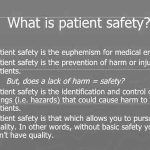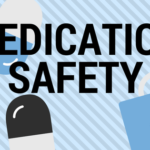Medication Safety for Nurses: Ensuring Optimal Patient Care

Medication safety is an essential aspect of nursing practice that directly impacts patient outcomes and quality of care. As the primary caregivers responsible for administering medications, nurses play a crucial role in preventing medication errors and promoting patient safety.
Over the years, significant advancements and historical events have shaped the practices and protocols surrounding medication safety for nurses. This blog post delves into the history of medication safety for nurses, highlighting key milestones and developments that have led to the current standards and guidelines in place today.
The importance of medication safety emerged as early as the 19th century when Florence Nightingale, the pioneer of modern nursing, recognized the need for careful administration and documentation of medications. Nightingale emphasized the significance of accurate medication administration to prevent adverse effects and improve patient outcomes.
In the early 20th century, nurses played a vital role in refining medication administration techniques. The introduction of the hypodermic syringe allowed for more precise dosage delivery, while the development of intravenous therapy expanded the possibilities for medication administration. Nurses became increasingly involved in the preparation and administration of medications, emphasizing the need for safety protocols.
The 1960s witnessed a significant event that greatly influenced medication safety practices. The thalidomide tragedy, where the use of thalidomide during pregnancy led to severe birth defects, highlighted the need for rigorous medication testing and regulation. This incident resulted in stricter drug approval processes and raised awareness about the potential risks associated with medication use.
As nursing advanced, various specialties emerged, such as critical care nursing, pediatric nursing, and geriatric nursing. These specialties brought unique challenges in medication administration and safety. Nurses in specialized fields developed specialized knowledge and skills related to medication safety, including dosage calculations, age-specific considerations, and adverse reaction management.
In the late 20th century, healthcare organizations and professional associations recognized the need for standardized medication safety practices. The Institute for Safe Medication Practices (ISMP) and other similar organizations focused on identifying medication errors, promoting best practices, and developing guidelines to enhance medication safety for all healthcare professionals, including nurses.
In this comprehensive article, we will explore the key principles of medication safety, discuss common medication errors, and provide practical strategies and guidelines to enhance medication safety in nursing practice.
1. Understanding Medication Safety: Medication safety refers to the process of minimizing the risk of medication errors, adverse drug events, and other medication-related complications. It encompasses various components, including prescribing, transcribing, dispensing, administering, and monitoring medications. Nurses need to be familiar with these components and understand their responsibilities at each stage to ensure safe medication practices.
2. Common Medication Errors: Medication errors can occur at any stage of the medication use process and can have serious consequences for patients. Some common types of medication errors include:
a. Administration errors: These occur when nurses administer the wrong medication, the wrong dose, or administer medications at the wrong time.
b. Documentation errors: Documentation errors can include incomplete or inaccurate recording of medication administration, allergies, or other important patient information.
c. Medication reconciliation errors: Failure to reconcile medications during transitions of care can lead to discrepancies and potentially harmful drug interactions or omissions.
d. Communication errors: Inadequate communication between healthcare providers, such as incomplete medication orders or unclear instructions, can contribute to medication errors.
3. Strategies to Enhance Medication Safety: To ensure optimal medication safety, nurses should employ the following strategies:
a. Verify patient identification: Always check the patient’s identification band before administering any medication. Confirm the patient’s name, date of birth, and any other necessary identifiers to prevent medication errors.
b. Use the “Five Rights” of medication administration: Ensure the right patient, right medication, right dose, right route, and right time. Following these principles can significantly reduce medication errors.
c. Employ barcode scanning technology: Barcode scanning systems can help verify medication and patient information, reducing the risk of errors during administration.
d. Practice proper medication storage and handling: Store medications in appropriate conditions, follow expiration dates, and prevent cross-contamination between medications to maintain their efficacy and safety.
e. Double-check calculations and measurements: Accurately calculate medication dosages and double-check calculations to minimize errors associated with incorrect dosing.
f. Promote effective communication: Establish clear lines of communication with healthcare providers, pharmacists, and patients to ensure accurate medication orders, clear instructions, and effective medication reconciliation.
g. Educate patients about medications: Provide patients with clear and understandable information about their medications, including proper administration techniques, potential side effects, and the importance of adherence.
h. Report and learn from medication errors: Encourage a culture of reporting errors without fear of repercussions. Analyze errors to identify root causes and implement strategies to prevent similar occurrences in the future.
4. Embracing Technological Advancements: Nurses should embrace technological advancements to enhance medication safety. Electronic health records (EHRs), computerized physician order entry (CPOE) systems, barcode scanning, and automated dispensing cabinets are examples of technologies that can streamline medication processes, reduce errors, and improve patient safety.
Importance of Medication Safety for Nurses
There are several resons why medication safety protocols are important for nurses, these include:
1. Patient Safety: Medication safety is crucial to ensure the well-being and safety of patients. By following medication safety protocols, nurses can minimize the risk of medication errors and adverse drug events, promoting positive patient outcomes.
2. Preventing Medication Errors: Medication errors can have serious consequences for patients, leading to harm or even fatalities. Nurses play a vital role in preventing medication errors by following proper medication administration procedures, double-checking calculations, and verifying patient information.
3. Enhancing Quality of Care: Medication safety is directly linked to the overall quality of care provided by nurses. By adhering to medication safety practices, nurses can maintain high standards of care, improve patient satisfaction, and contribute to positive healthcare experiences.
4. Legal and Ethical Obligations: Nurses have a legal and ethical duty to administer medications safely and accurately. Following medication safety guidelines helps nurses fulfill their professional obligations and avoid potential legal consequences associated with medication errors.
5. Collaboration and Communication: Medication safety requires effective collaboration and communication among healthcare providers. Nurses play a crucial role in communicating with physicians, pharmacists, and other team members to ensure accurate medication orders, resolve discrepancies, and address patient concerns.
6. Medication Reconciliation: Proper medication reconciliation is essential during transitions of care, such as hospital admission, transfer, or discharge. Nurses’ attention to detail and commitment to medication safety during reconciliation processes help prevent medication discrepancies, drug interactions, and omissions.
7. Minimizing Adverse Drug Reactions: Adverse drug reactions can occur due to incorrect dosages, drug interactions, or individual sensitivities. By practicing medication safety, nurses can minimize the occurrence of adverse reactions and protect patients from unnecessary harm.
8. Educating Patients: Nurses play a crucial role in educating patients about their medications. By providing clear and comprehensive information about proper administration techniques, potential side effects, and the importance of adherence, nurses empower patients to take an active role in their own medication safety.
9. Preventing Medication Diversion: Medication diversion, the unauthorized use or distribution of medications, is a serious concern in healthcare settings. By adhering to medication safety protocols, nurses can help prevent and detect instances of medication diversion, ensuring that medications are used appropriately and safeguarding patient welfare.
10. Continuous Quality Improvement: Medication safety is an ongoing process of improvement and vigilance. By reporting and analyzing medication errors, identifying root causes, and implementing preventive measures, nurses contribute to a culture of continuous quality improvement, fostering safer medication practices over time.
Conclusion
Medication safety is a shared responsibility among healthcare professionals, with nurses playing a crucial role in preventing medication errors and promoting optimal patient care. By understanding the principles of medication safety, being vigilant at every stage of the medication process, and embracing technological advancements, nurses can significantly contribute to reducing medication errors and ensuring the well-being of their patients. Remember, medication safety is not a choice; it is an ethical and professional obligation that we must uphold to provide the best possible care to those we serve.





